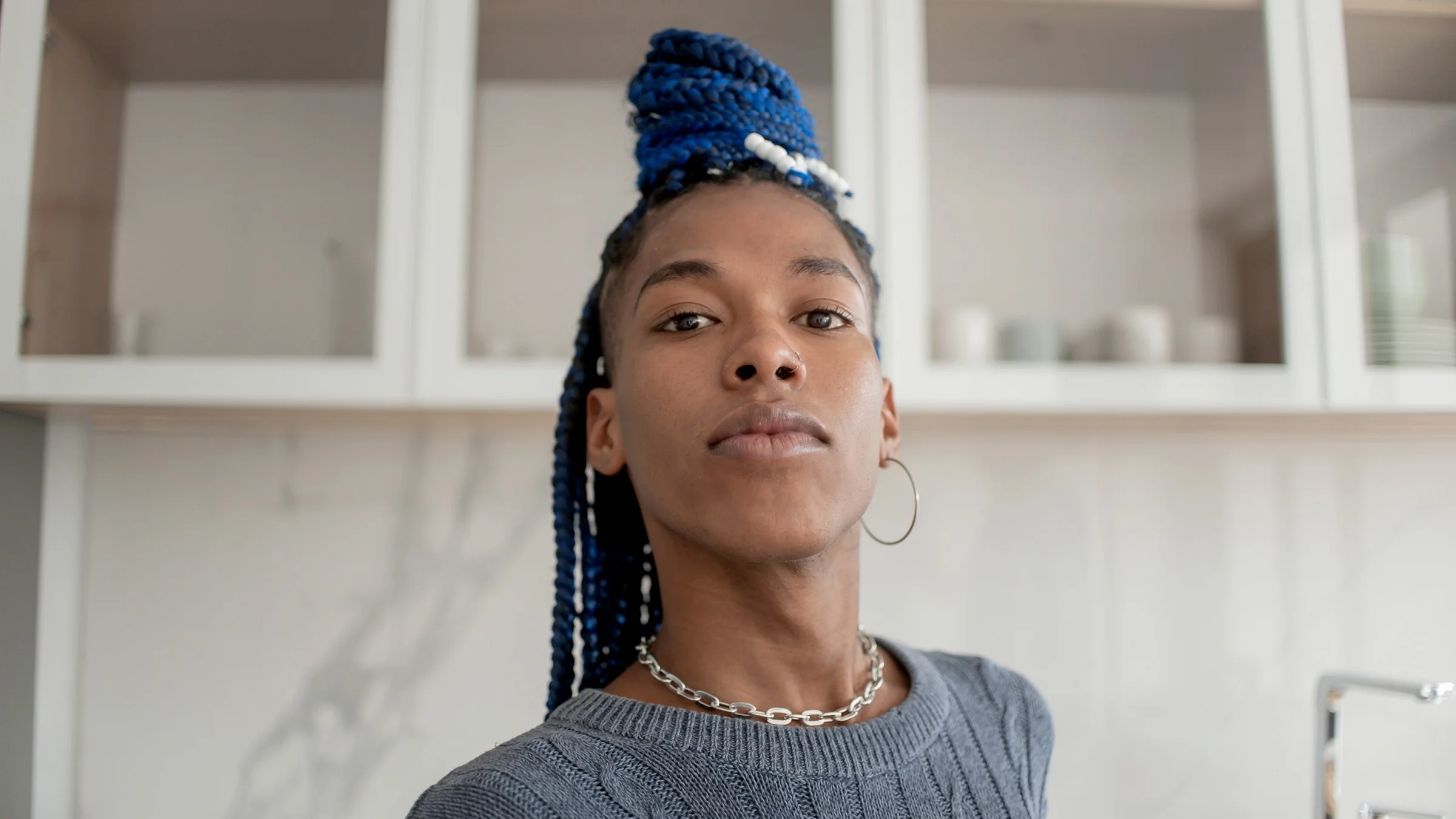Key takeaways:
In 2020, the COVID-19 pandemic hit Black transgender (trans) communities hard.
Historical and present-day transphobia and anti-Black racism have created challenges for Black trans communities, making them more vulnerable to the health and economic effects of the pandemic.
Financial resources, mental health support, and community-building spaces are available to help Black trans people get any assistance they may need.
The COVID-19 pandemic has worsened the effects of centuries of discrimination and racism against Black communities, as well as people with Hispanic, Asian, and Indigenous origins and other people of color. But race isn’t the only social factor that has played a role in how well or how much a particular community has been affected by this global crisis.
An example of this is COVID-19’s dire impact on the Black transgender community, which has coincided with a year of record high levels of violence against people in these communities.
Let’s find out why the Black trans community has been so deeply affected, and what resources are available to help them during the pandemic.
How has the COVID-19 pandemic impacted the Black trans community?
Centuries of systemic and individual racism and transphobia make Black trans communities vulnerable from a social, political, and economic perspective. Unfortunately, the COVID-19 pandemic has pushed marginalized communities into even more challenging conditions.
Impact on support systems and mental health
COVID-19 has taken a toll on Black trans people’s mental and physical health. Black trans people often rely on social support outside of their immediately family because of discrimination and bias. Seeking safe companionship and support amongst their chosen communities is a method of building a strong, caring network.
Efforts intended to manage the spread of the pandemic, such as social distancing and sheltering in place, have resulted in isolation for much of the population worldwide. This isolation, while important from a disease management point of view, has forced some Black trans people into unsafe or unwelcoming environments and simultaneously isolated them from their primary support systems.
In 2020, violence against Black trans people was also at a record high, and several anti-transgender laws and policies were proposed across the nation. These events have significant effects on the mental wellness of people who identify with this group.
Impact on employment and insurance status and physical health
Black transgender people have a higher risk of being exposed to the novel coronavirus because of increased rates of homelessness, unemployment, or underemployment. A 2020 survey by the Human Rights Campaign Foundation showed that 30% of transgender people of color had to switch from full-time to part-time work because of COVID-19. Over half have had work hours reduced, 37% have taken pay cuts, and 26% have lost their jobs altogether.
In the U.S., employment status is closely tied to insurance status. Often, changes in employment can also cause a person to be uninsured or underinsured, which affects a person’s physical health and their ability to achieve optimal wellness. Plus, the pandemic has made it more difficult to access gender-affirming care, including time-sensitive hormone therapy.
Read more like this
Explore these related articles, suggested for readers like you.
What preexisting socioeconomic and health factors put marginalized groups at higher risk of harm from the pandemic?
According to research from Columbia University, many Black trans people experience economic instability due to discrimination in several other facets of life, including educational institutions, the workplace, and even family structures. Because of this instability, many of these people were already in difficult conditions before the pandemic struck. So the challenges the economy is facing overall tend to burden these groups more than others.
In a study that explored the vulnerability of trans women to COVID-19, researchers noted that the participants had high rates of unemployment, homelessness, poverty, and food insecurity. Health factors like being HIV positive also increase potential harm from COVID-19 since people who are immunocompromised are more likely to get sick from the virus.
Finding healthcare providers who are respectful and welcoming can be challenging for Black trans people as well. Inability to find this type of care may lead to them delaying care, avoiding preventive visits, and dealing with problems or issues on their own instead of seeing a healthcare professional.
Affording healthcare is another hurdle for some. Because of job loss, hours being cut, and other employment concerns, money may be a limited resource. Choosing between paying rent and other more urgent bills may outweigh paying for a preventive care visit. Many insurance companies also discriminate against trans people by excluding them from being covered, making it harder to access care.
For reasons like these, many Black trans people may not have had the best health status pre-pandemic, which makes them more vulnerable to adverse effects of the pandemic.
Why has the Black trans community been hit harder than other LGBTQ+ groups?
While there are some shared experiences between LGBTQ+ communities, there are also distinct experiences that some groups may have more than others.
According to data from the U.S. Transgender Population Health Survey, transgender adults are more vulnerable to COVID-19 because of factors like:
Increased rates of homelessness, potentially due to unsafe environments, family conflict, and intimate partner violence
Underlying health conditions like asthma, diabetes, HIV, and heart disease
Smoking status
Poverty
Mental health challenges
Unemployment
COVID-19 has also caused more hospitalizations and deaths in Black communities when compared with white communities. So in addition to being at higher risk for developing severe illness or dying from the virus, Black trans people are navigating transphobia and anti-Black racism, too. Together, these issues only compound the negative effects of the pandemic on them.
Are there any resources for Black trans people who have been affected by the pandemic?
The good news is that there are several resources available for Black transgender people who may be in need of assistance. These range from mental health services and online support groups to financial help and more. You can also find an extensive list of crisis and emotional support, emergency funds, and Black-centered and trans-centered resources here.
Mental health services for Black trans people experiencing increased anxiety and depression
ColumbiaDoctors offers a therapy program — the Gender Identity Program — to low-income transgender and gender non-binary people who are unable to find appropriate mental health care elsewhere.
Likewise, Rest for Resistance is an online zine that creates safe and healing “spaces” for trans people of color and other marginalized groups, and the queer-identifying therapists at Hawn Therapy and Consulting also offer similar services.
And if you are in search of a mental healthcare provider in North America, the National Queer and Trans Therapists of Color Network directory may be helpful in finding a provider who understands your lived experiences.
Financial resources for Black trans people
The Black Trans Advocacy Coalition has served over 5,000 trans people during the COVID-19 response through resources, including over 1,100 grants. They are currently accepting applications for a Black Trans COVID-19 Community Response grant, which provides financial assistance for food, shelter, utilities, transportation, and healthcare.
Online support groups and communities for Black trans people
The National Center for Transgender Equality, Audre Lorde Project, and Trans Lifeline are just three advocacy organizations that provide mental health and social support to transgender and non-binary communities.
And if you are looking for a safe place to talk, text, message, or network, The Trevor Project offers 24/7 services, as well social networking for LGBTQ+ youth under 25.
The bottom line

Why trust our experts?


Black trans communities have had their lives severely disrupted by COVID-19 due to social, economic, and political factors. Financial resources, mental health support, and community-building spaces can allow them to connect with others and get the help that they need.

















